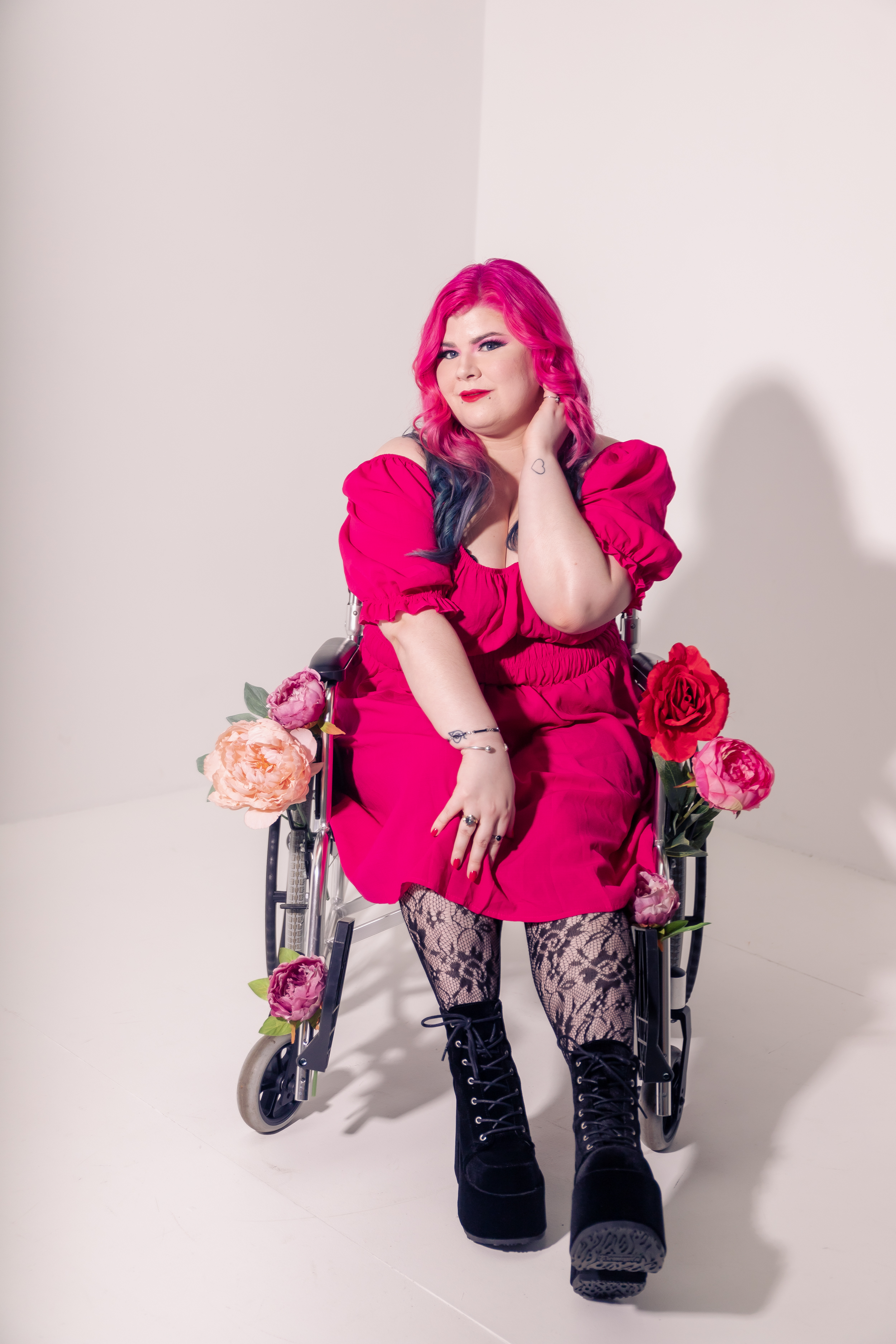Zoe Simmons is an award-winning disabled journalist, copywriter, speaker, author and fierce advocate. She writes and speaks candidly about her experiences as an autistic, chronically ill, queer disabled person living with complex mental illness to smash stigma and create change. You can find out more about Zoe on her website, or follow her on Facebook, Instagram, Twitter, LinkedIn or Tik Tok.
Getting older can be a little bit terrifying.
There is so much change, especially from your teens, to your 20s, and 30s. And while that can be exciting, it can also be really scary, especially if change is extra hard for you.
But I’m here to tell you: it really will be okay!
However, I know how you feel. Because that was me, just a few short years ago.
I was 25 when I connected with the youth disability advocacy space. Because before that, I didn’t even know I was disabled, despite being autistic from birth, and developing bipolar and anxiety from an early age. It wasn’t until my 20s when I began developing severe chronic pain, fatigue, illness and a whole host of other symptoms that I realised I could call myself disabled—it was a really profound moment for me. It felt empowering. Like I was taking a stance against non-disabled standards for disabled people. And it felt even more wonderful being able to connect with other young disabled people in the space—to hear our stories that are all so different, yet oh-so similar, all of us filled with this burning desire to create positive change in the world.
But, of course, given my age, I wasn’t able to be in the youth disability advocacy space for long.
I am so grateful that at 26 I had the opportunity to participate in the Youth Disability Advocacy Service’s Leadership Program, because it really did help me so much! I learned a lot, my confidence grew, and I connected with other young people, which was so amazing. It felt really affirming, and made me feel like maybe I was a leader—and maybe I could be an even better one.
But then, a few months later, I had a birthday.
And I was too old for any more opportunities in the youth space, except for the rare opportunity open to those 28 and under.
It was really hard to only just find these opportunities existed, and then almost instantly age out of them. I felt like doors had closed in my face. It’s hard to see so many exciting opportunities you’re just too old to be a part of. Even youth events and conferences: I applied for one last year, excited I still could, only to find out only people under 25 could physically attend. But I could watch it from a distance, alone, online.
It's a lonely feeling. Sometimes, it’s a devastating feeling. Because, where are the programs for those of us in our late 20s? It felt like I suddenly didn’t matter, the word “old” getting thrown in my face, over and over again.
But ageing out of the youth sector doesn't mean your advocacy is over.
Or that you won’t be able to get any more opportunities. It just means things will look a little different. You might not be able to access youth-specific spaces anymore, but there are plenty of organisations and programs that cater for disabled people of all ages: not just young people. Plus, being a young person with experience, you’re already a huge step ahead: and the views and experiences of young people are incredibly sought after by many organisations—not to mention the fact that in a lot of spaces, you can be in your late 20s or early 30s, and still access youth-focused opportunities.
Still, it can be overwhelming when you first age out of the space. You might feel like you’ve just been thrown into a vast ocean with only a small life jacket, wondering what the heck you can do. But here’s where it gets exciting: because you can do literally anything.
Ageing can come with grief and fear, but it can also mean lots of other opportunities are open to you. You’ll gain more experience, grow your confidence, and make even more connections. You’ll step into your power more: because we all can make a difference. And as you grow older, you’ll see that even more.
And if it’s losing the social aspect of the youth disability advocacy space that’s hardest for you, there are plenty of things you can do to connect with other disabled adults, like working with organisations, working on committees, and joining online groups (Chronically Fully Sick and Disabled, Deaf, neurodivergent and chronically ill Australian writers are my favourites—both on Facebook). But connecting with people through social media can also be helpful, especially disability and chronic illness apps like Spoonie. Other suggestions are Sick Sad Girlz on Instagram or Peer Support Groups, like this one called Belong (open to everyone over 16 years of age).
Whatever you feel about ageing is valid.
But try to focus on the exciting new things that will come your way. Think of it like levelling up. And your potential is endless.
I’m turning 30 this year now, so I will be locked out of pretty much all youth spaces. And that does make me sad. But it’s also an opportunity. And there will be so many amazing opportunities, no matter what age you are. Be kind to yourself. And know that no matter what happens, everything will be okay.




